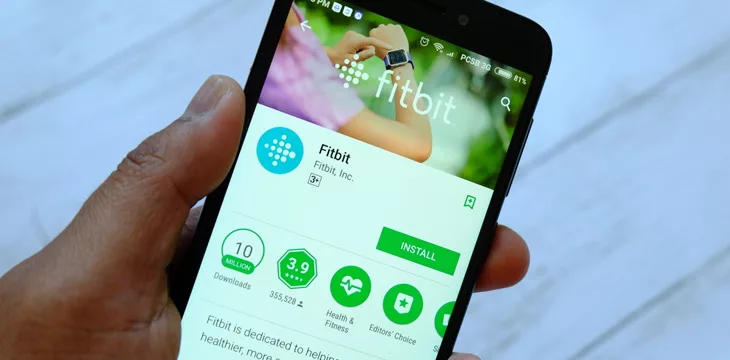|
Getting your Trinity Audio player ready...
|
Following the release of generative artificial intelligence (AI) models, Bard and Gemini, Google (NASDAQ: GOOGL) is keen on adding another model to its clutch of offerings to extend the lead over its rivals.
In its announcement, Google said it is putting pieces in place for the commercial release of a personal health-based large language model (LLM) specifically tailored for its Fitbit app.
Details for the release are currently sparse, but several sources are pointing at a range of functionalities for the model. Google clarified that the LLM will be able to glean and interpret data from the Fitbit app rather than make any diagnosis or offer treatment for users.
“Fitbit synthesizes your personal health and fitness data so you can track it in the Fitbit app,” read Google’s statement. “Our team is now building personal AI features to bring even more tailored, personalized insights that you can explore based on your unique needs and preferences.”
While the clarification limits the capabilities of the LLM, insiders with knowledge of the development say that the offering will be able to offer tailor-made suggestions for sleep patterns and exercise routines.
Other functionalities include inputs in natural language to gain information on specific health questions involving active zone minutes (AZM) during exercise or quality of sleep. Furthermore, the LLM will be able to present data using charts and point features, with experts predicting the use of histograms and heatmaps to convey information.
Google says the personal health-based LLM is trained with health signals from a litany of research, confirmed by a laundry list of certified coaches and wellness experts. The tech giant disclosed that the LLM will form the foundation of its future AI health products, but uncertainties continue to plague the offering.
Google remains mum on whether the model will run on-device or be operational via an internet connection. At the same time, an on-device model will offer advanced protections for users, and an internet-based system will provide greater interoperability across multiple devices and integration with other emerging technologies.
A swathe of health-related updates
While Google teased users with an incoming health LLM, the company unveiled several updates to improve its health offerings, including improvements to Search. The tech giant noted that users can use Google Lens to search for photos of health challenges on their bodies, ranging from a benign rash on the hand to complex issues.
Over the last 12 months, the company has updated visual results for health searches from quality sources to “make it easier to understand symptoms.”
On the other hand, YouTube’s AI dubbing feature, Aloud, has seen action in supporting the dubbing of first-aid videos from English to other languages. In the coming weeks, the video streaming service confirms that it will extend the dubs to videos on cancers and chronic obstructive pulmonary disease.
In order for artificial intelligence (AI) to work right within the law and thrive in the face of growing challenges, it needs to integrate an enterprise blockchain system that ensures data input quality and ownership—allowing it to keep data safe while also guaranteeing the immutability of data. Check out CoinGeek’s coverage on this emerging tech to learn more why Enterprise blockchain will be the backbone of AI.
Watch: Blockchain & AI—there should be confluence between these tech

 07-02-2025
07-02-2025 





